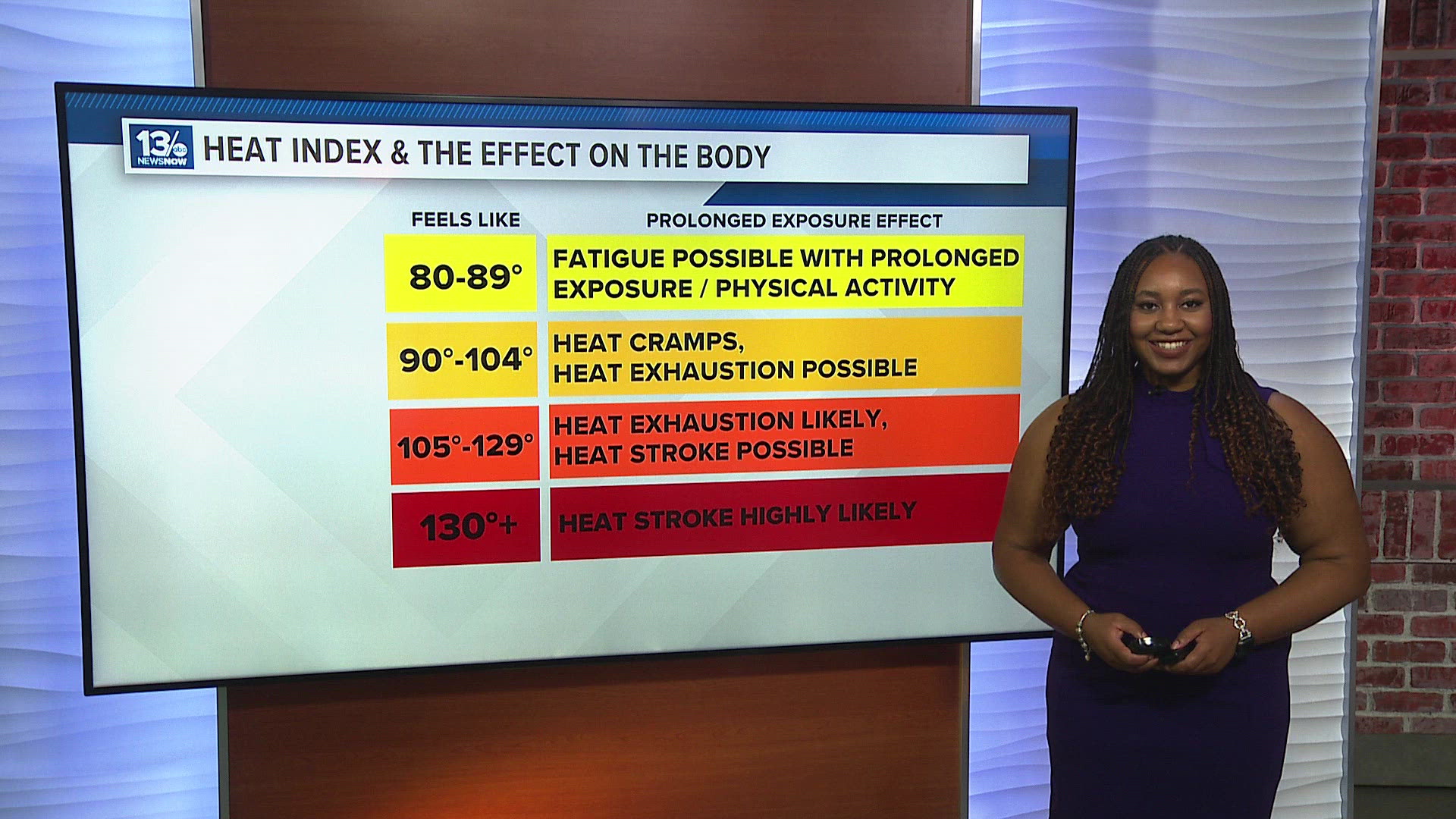NORFOLK, Va. — We talk about heat indices, or feels-like temperatures, a lot, but let's talk about how your body may react to certain hot temperatures. We'll start off with the "coolest" temperatures and work our way up.
At feels-like temperatures of 80 to 89 degrees, you may experience some fatigue if you spend a lot of time outdoors. This is mainly for those who work outdoors for a living.
Once the heat index rises to 90 to 104 degrees, heat cramps or heat exhaustion may settle in. If you or someone you know starts to experience heat exhaustion, make sure that person is drinking water and finds their way to an air-conditioned place. Some symptoms of heat exhaustion include excessive sweating, dizziness, and a weak, rapid pulse.
Feels-like temperatures of 105 to 129 degrees is grounds for heat advisories and excessive heat warnings here in the Mid-Atlantic. Under these conditions, heat exhaustion is likely and heat stroke becomes possible.
Some symptoms of heat stroke include no sweat, a throbbing headache, and possible loss of consciousness. If symptoms of heat stroke start to arise, immediately call 911.
Now, a heat index of 130 degrees plus is extremely unlikely in Hampton Roads, but in that brutal heat, heat stroke is highly likely.
When the temperatures around your area start to climb into dangerous territory, make sure to practice heat safety. This includes drinking plenty of water and taking frequent breaks in the shade or indoors. Also, make sure your pets are properly equipped with shoes for their paws because concrete and asphalt temperatures soar because those surfaces absorb heat easily.

